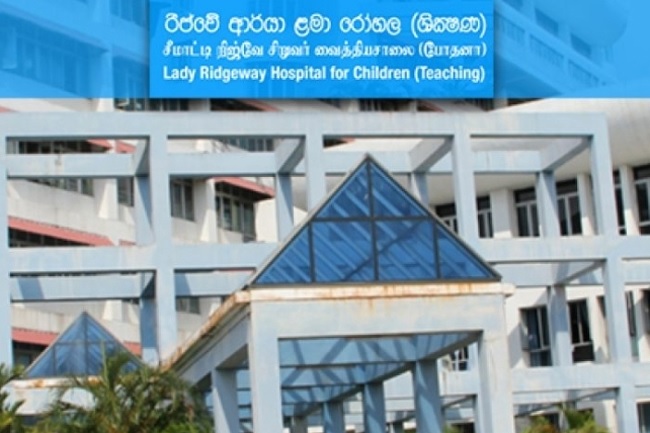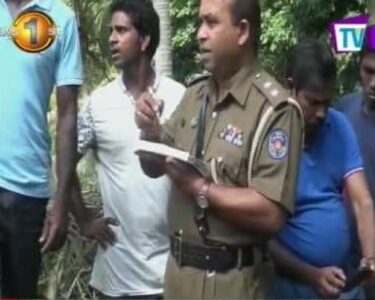The case surrounding the tragic death of Baby Hamdi, following a kidney surgery at Lady Ridgeway Hospital in Borella, has raised significant concerns regarding medical malpractice, potential negligence, and accountability within the healthcare system. The Colombo Magistrate’s decision to order the arrest of any individuals responsible for the child’s death is based on the evidence presented and the apparent discrepancies in the medical handling of the case. Here’s an analytical examination of the situation:

Key Facts and Timeline
Initial Diagnosis and Surgery:
Baby Hamdi, nine months old, developed complications in his urinary system, prompting referral to the Lady Ridgeway Hospital.
Tests and scans showed that Hamdi’s left kidney was malfunctioning, and a recommendation was made for its removal.
On December 24, 2022, Hamdi underwent kidney surgery performed by Dr. Naveen Wijekoon, during which it is alleged that both kidneys were removed.
Post-Surgery Discrepancies:
After the surgery, a DSMA test was performed, followed by a CT scan, both revealing that both kidneys were missing, despite the initial diagnosis that only the left kidney needed removal.
Seven months after surgery, on July 28, 2023, Hamdi passed away after battling for his life.
Post-Mortem Inquiry and Medical Reports:
During the post-mortem inquiry, it was revealed that medical reports and scans disproved the claim by the doctor that the kidneys were located abnormally. In fact, both kidneys were anatomically positioned as expected.
Evidence indicated that the cause of death was likely due to the careless removal of both kidneys during the surgery.
Legal Action and Magistrate’s Order:
Counsel Y.L.M. Yoosuf, representing the aggrieved parents, presented compelling evidence during the inquiry, leading to the Magistrate’s order.
Magistrate Harshana Kakulawela directed the Borella Police to arrest any perpetrators responsible for Baby Hamdi’s death, based on the facts presented in court.
Analytical Examination
1. Medical Malpractice or Negligence?
The case seems to indicate that the child’s kidneys were removed unnecessarily and carelessly, which points towards potential medical malpractice.
Initial Diagnosis vs. Actual Condition:
The initial diagnosis indicated that Hamdi’s left kidney was malfunctioning and needed removal. However, after surgery, scans revealed that both kidneys were missing. If the kidneys were indeed located anatomically in the right places, as indicated by the reports, this suggests that the surgery may have been mishandled.
The doctor’s later claim that the child had a rare condition affecting the location of the kidneys seems inconsistent with the medical findings, raising questions about the accuracy of the diagnosis and the judgment made during the surgery.
2. Accountability of Medical Professionals
Failure in Diagnosis and Procedure:
If the kidneys were anatomically correct, removing both kidneys could be seen as a catastrophic failure in both diagnosis and surgical execution. The medical team failed to prevent the unnecessary removal of a healthy kidney, which would be considered gross negligence in a healthcare setting.
Informed Consent: It is also critical to examine whether the parents were fully informed about the surgery, its potential risks, and the expected outcome. If the child’s condition was not communicated effectively, this could compound the accountability of the medical professionals involved.
3. Legal Implications
Magistrate’s Order:
The Magistrate’s decision to order arrests for any individuals involved in the death of Baby Hamdi is a significant step in ensuring justice for the deceased and his family. The legal process will now focus on identifying who is directly responsible for the error, whether it was the surgeon, other medical staff, or possibly systemic issues within the hospital.
Potential Charges: Medical professionals could face serious charges such as criminal negligence, gross malpractice, or even manslaughter, depending on the evidence presented during investigations. If it is confirmed that the removal of both kidneys was an act of carelessness or recklessness, this could lead to severe legal consequences.
4. Broader Healthcare System Concerns
Hospital Protocols:
This incident raises broader questions about the effectiveness of hospital protocols in preventing medical errors. There may be lapses in pre-surgical assessments, the quality of the medical review process, and the oversight of surgical procedures. If the hospital did not have proper systems in place to double-check diagnoses, surgical plans, or post-operative care, this would reflect poorly on the institution’s responsibility to maintain high standards of healthcare.
Medical Oversight and Regulation:
The case underscores the importance of independent medical oversight and the need for more robust regulation of healthcare providers. Proper review processes and audits are necessary to detect errors early and prevent such tragedies from happening in the future.
5. Impact on Family and Trust in Healthcare
Emotional Toll on Family:
The aggrieved parents have already suffered the devastating loss of their child. The emotional toll and trauma of losing a child due to a suspected medical error are profound, and the subsequent legal and medical inquiries only add to their distress.
The transparency and accountability from the healthcare system are crucial not only for justice but for restoring some level of trust in the system. The case could also highlight the need for better patient advocacy, where families are supported through the aftermath of medical errors.
The tragic death of Baby Hamdi has not only caused immense grief to the family but has also brought to light serious concerns regarding medical malpractice, negligence, and systemic failures within healthcare institutions. The Magistrate’s order to arrest the responsible parties is an important step in seeking justice, and it underscores the need for accountability in healthcare. The case has significant implications not only for those directly involved but also for the broader healthcare system, highlighting the importance of accurate diagnosis, surgical diligence, and patient safety protocols.







